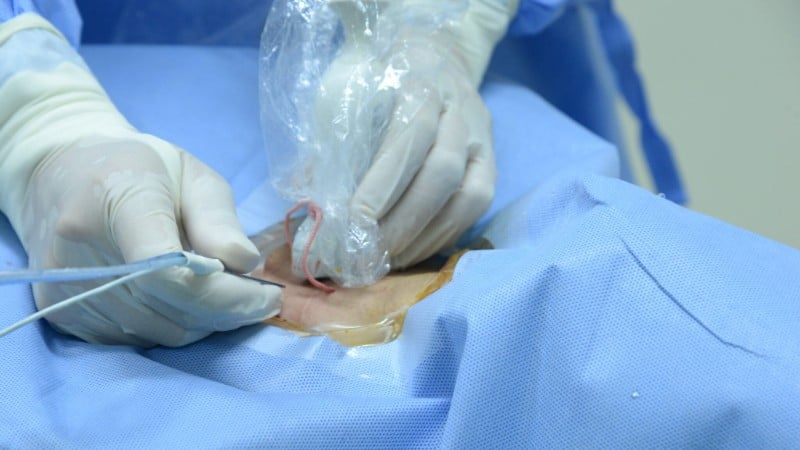
The procedure was successfully performed by a team led by Master, Doctor Do Thanh Cong - Deputy Head of the Department of High-Tech Treatment, Central Endocrinology Hospital.
This is a breakthrough in the treatment of cases of recurrent neck lymph nodes after thyroid cancer surgery, when the lesion is deep, close to large blood vessels, difficult to access with traditional surgery - thereby opening up new expectations for many patients.
A 42-year-old male patient had undergone total thyroidectomy and neck dissection for thyroid cancer 3 months ago. At a recent follow-up visit, imaging results showed recurrent metastatic lymph nodes deep in the neck, close to the carotid artery and internal jugular vein.
The complex location, along with postoperative tissue adhesions, makes reoperation dangerous, potentially causing damage to important structures in the neck area.
Sharing about treatment options, Dr. Do Thanh Cong said: “In cases of deep recurrent lymph nodes, near large blood vessels or the trachea and postoperative tissue adhesions like this patient, re-surgery carries many potential risks. High-frequency radiofrequency ablation is a breakthrough solution, bringing high efficiency, safety and minimal invasiveness.”
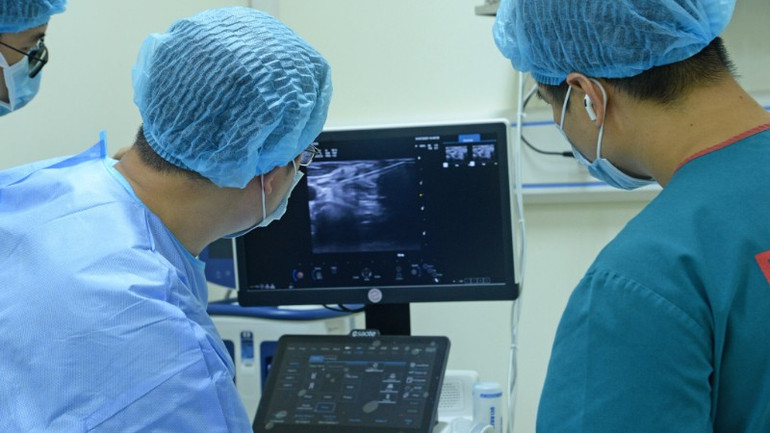
Under ultrasound guidance, the team used a specialized needle to precisely approach the lymph node mass, applied the moving-shot technique and injected a separating fluid to protect the surrounding large blood vessels. The procedure was safe, the patient was awake, painless, no complications were recorded and he was discharged the same day.
The lymph nodes are completely destroyed by the heat from high frequency waves, without the need for open surgery or prolonged hospitalization.
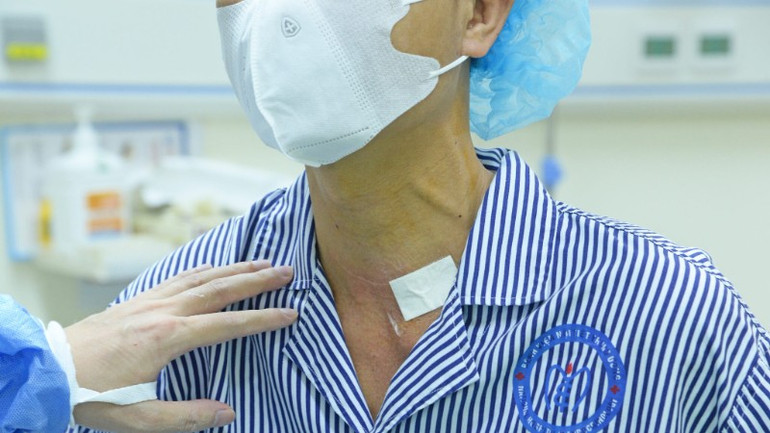
According to Dr. Do Thanh Cong, the successful application of RFA technique in the treatment of recurrent cervical lymph nodes after thyroid cancer not only affirms the professional capacity and ability to master modern technology of the Central Endocrinology Hospital, but also marks an important step forward in the treatment of recurrent cancer in Vietnam.
This will be the preferred choice in the future for recurrent cases that are difficult to treat with open surgery, contributing to improving the quality of life and minimizing complications for patients.
Source: https://nhandan.vn/buoc-dot-pha-dieu-tri-hach-co-tai-phat-sau-mo-ung-thu-tuyen-giap-bang-ky-thuat-dot-song-cao-tan-post898779.html



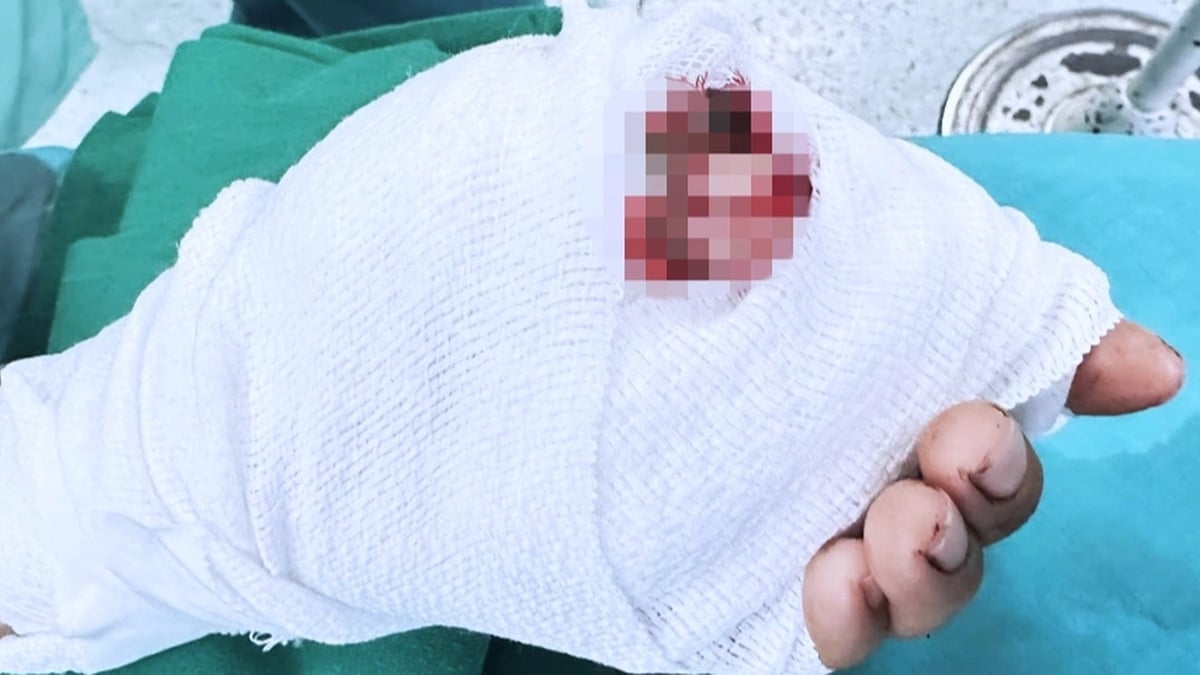





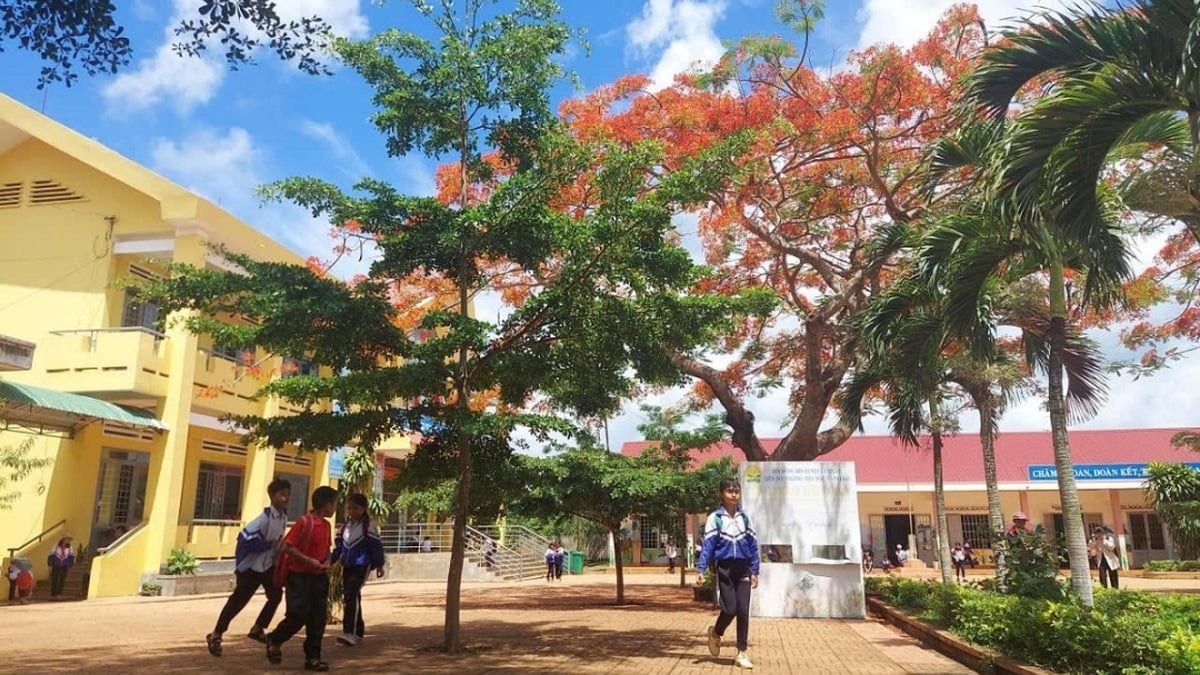


















































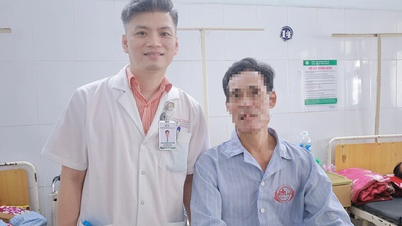
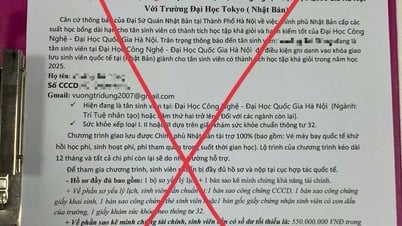









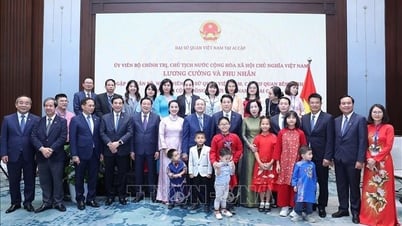


























Comment (0)